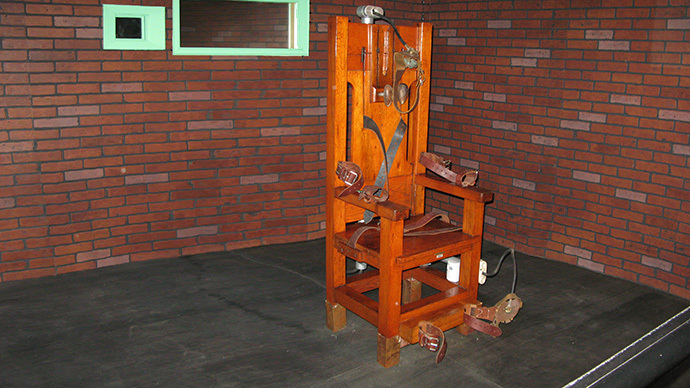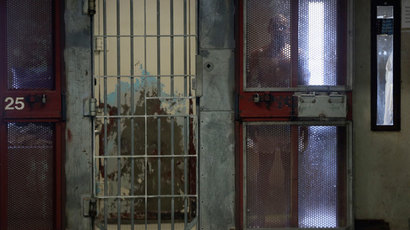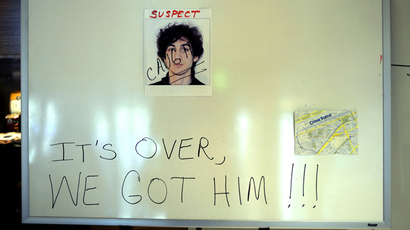Virginia to vote on electric chair as default execution method

Virginia lawmakers are reportedly set to vote on using the electric chair as a default form of execution because of a shortage of drugs. If the measure is approved, Virginia would become the only state where prisoners are forced into the punishment.
The bill authorizing the electric chair as the back-up method of execution passed through the House of Delegates this week and is expected to be voted on by the Virginia Senate, reports the Washington Post.
At present, the State of Virginia allows prisoners facing the death penalty to choose between lethal injection and electrocution. If the prisoner does not choose, the electric chair is the default form of execution. This system currently applies to all 33 states where the death penalty is legal.
Under the proposed legislation in Virginia the prisoner would be denied the choice and forced to accept electrocution in the absence of the drugs needed for a lethal injection.
The bill has arisen in light of a shortage of lethal injection drugs caused after the EU announced it was stopping the sale and export of drugs that could be used for executions in 2011. The ban pertains to barbiturates and a sedative used in executions and has given rise to a number of proposals from US lawmakers for firing squad, gas chamber and electrocution to be used as alternatives.
However, Virginia looks set to be the first state to advocate such a measure.
“I’m going to vote against it, but I suspect it’s going to pass,” said Senator A. Donald McEachin to the Washington Post in January.
Furthermore, the lack of drugs prompted Missouri Attorney General Chris Koster to call for the return of the gas chamber in the state.
“Unless the court changes its current course, the legislature will soon be compelled to fund ... alternative methods of execution to carry out lawful judgments,” Koster told AFP.
In spite of the push to reintroduce some of the older methods of execution, some argue that the transition will be difficult. Deborah Denno, a professor of law at Fordham University’s School of Law told AFP that “the very reason they went to lethal injection is because electrocution wasn’t working, lethal gas wasn’t working.”
The lethal injection requires a cocktail of three different drugs that work together to put the prisoner to sleep, paralyze the muscles and stop the heart. The method of execution was first used in Oklahoma more than 35 years ago.
In recent years the EU has sought to curb the practice of execution in the US by cutting the export of drugs that could be employed in the procedure.
“Not only is capital punishment outlawed across Europe, but European policy is also to work actively for [the] abolition of the death penalty worldwide,” says Sarah Ludford, a member of the European Parliament to Bloomberg last month.
Since the death penalty was reinstated by the US Supreme Court in 1976, 1,362 people have been executed and 3,108 inmates are currently awaiting execution.














